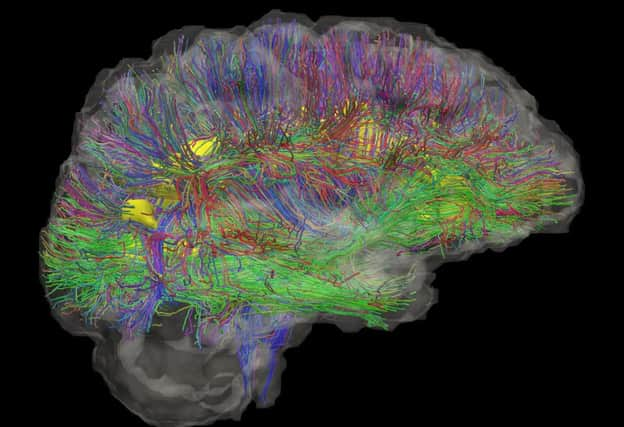'˜Revolutionary' research identifies brain receptor that regulates fat-burning


Scientists from the University of Glasgow and the Gladstone Institutes in California, discovered that suppressing levels of a specific brain receptor can help to protect against diet-induced obesity.
The discovery has been hailed as “revolutionary” by the researchers, who will now work to develop a drug that can have the same effect.
Advertisement
Hide AdAdvertisement
Hide AdThe p75 neurotrophin (NTR) receptor controls a range of functions throughout the central nervous system and is involved in neuron growth and survival.
Researchers found that decreasing levels of the receptor prevented obesity and metabolic diseases in mice fed a high-fat diet.
Mice with lower levels of p75 receptors fed a high-fat diet were protectected from developing obesity.
The study’s results allow scientists to now prove that the receptor helps regulate metabolic processes that control body weight, and that reducing the number of receptors in fat cells prevents weight gain.
Professor George Baillie, from the University of Glasgow’s Institute of Cardiovascular and Medical Sciences hailed the discovery as “revolutionary” as previously (although suspected) it had not been proven that the receptor was responsible for fat burning.
Professor Baillie said: “Mice that had p75 NTR genetically silenced were protected from diet-induced obesity, type 2 diabetes, fattening of the arteries and fatty liver disease.
“This suggests a highly novel way to counteract the global obesity epidemic as targeting p75 NTR in tissue could become a therapeutic intervention for the prevention of obesity and diabetes.”
The team behind the California-led project used small molecules to target the p75 NTR receptor in the mice and “switch off” the signal that prevents fat burning.
Advertisement
Hide AdAdvertisement
Hide AdThe researchers say the next step is to develop molecules or drugs that regulate the receptor to reproduce this effect.
However human application is still a very long way off.
Professor Baillie explained: “ We’re really still in the very, very early stages of looking at the physical effects of p75 NTR.”
Researchers from the University of California, San Diego and King’s College London also took part in the research.